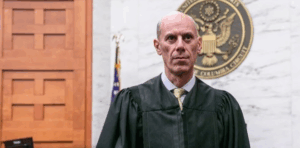The trial of Erin Patterson, charged with three counts of murder and one of attempted murder, commenced in Morwell, Australia. The case revolves around a mushroom-laden lunch that left three relatives dead and one survivor, with both prosecution and defense presenting contrasting narratives regarding the intent and circumstances of the event.
Australian Woman's High-Profile Trial Begins Over Fatal Mushroom Meal

Australian Woman's High-Profile Trial Begins Over Fatal Mushroom Meal
Erin Patterson faces murder charges after a disastrous lunch resulted in the deaths of three guests, as her defense claims the incident was an unintended tragedy.
The Supreme Court trial of Erin Patterson, a 50-year-old Australian woman, commenced this Wednesday in Morwell, Victoria, as she faces grave accusations in relation to a fatal mushroom meal in July 2023. Charged with three counts of murder and one of attempted murder, Patterson acknowledges picking wild mushrooms and disposing of evidence but asserts that the incident was an unfortunate accident, rather than a deliberate act of malice.
Throughout the six-week trial, the prosecution will argue that Patterson intentionally poisoned her guests under the guise of hosting a lunch, having allegedly invited them after falsely claiming she had been diagnosed with cancer. The lunch took a tragic turn as three guests succumbed to illness linked to the toxic death cap mushrooms served in a beef wellington dish, while one, local pastor Ian Wilkinson, narrowly survived after weeks of hospitalization.
During the opening statements, prosecutor Nanette Rogers outlined the circumstances of the case, indicating that what initially appeared to be a mass food poisoning incident evolved into a criminal investigation suggesting deliberate poisoning. Evidence is expected to reveal that Patterson researched local mushroom sightings and misled investigators about the source of the mushrooms, claiming they were purchased from a grocery store and not foraged. Additionally, after the incident, she allegedly discarded items used in preparing the meal at a local dump, raising further suspicions about her intentions.
In contrast, Patterson's defense, led by barrister Colin Mandy, contends that her response to the ensuing chaos clouded her judgment, leading to actions that may seem incriminating but were borne out of panic and dread. Mandy emphasized that while the prosecution might argue for deliberate action, the reality of the situation was one of tragedy and shock, asserting that Patterson did not set out to harm her family.
The judge, Christopher Beale, highlighted that the central question for the jury will focus on Patterson's intent—whether she meant to kill or inflict serious harm. A range of witnesses, including medical professionals and Patterson's estranged husband, are expected to testify, contributing to the detailed narrative surrounding this heartbreaking case that questions the fine line between negligence and criminal intent.



















